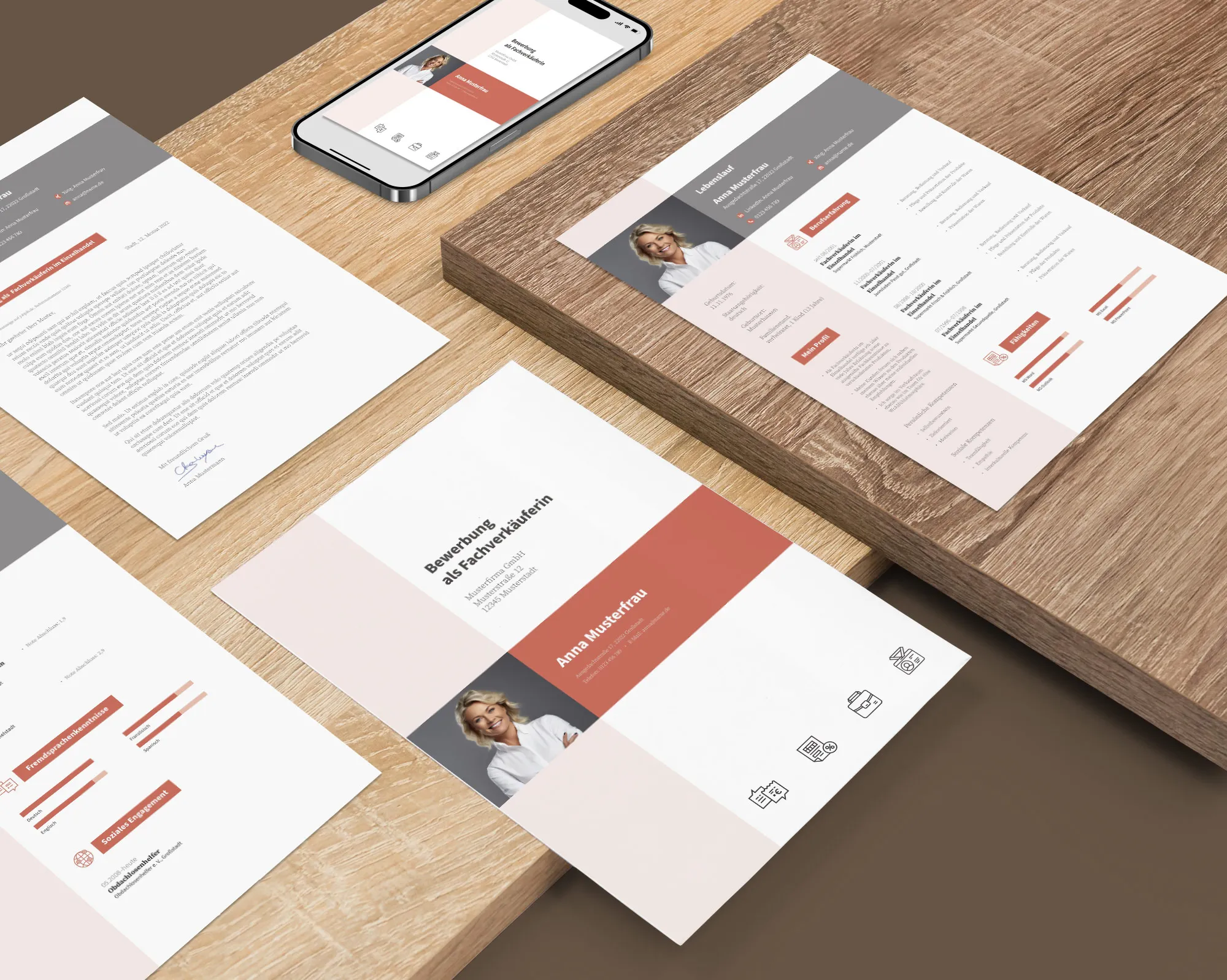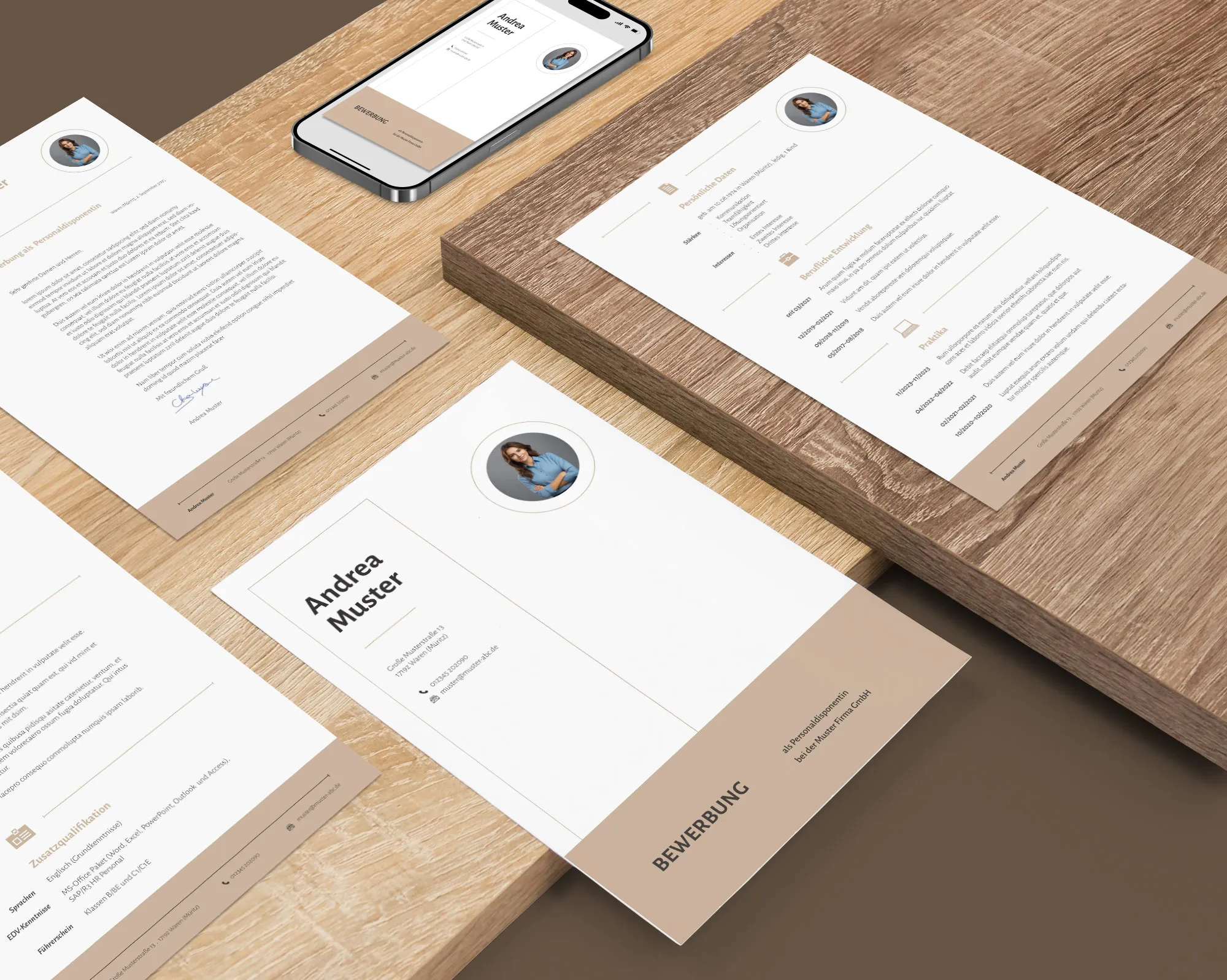Sound technician: Template for a job application with CV
Imagine mixing the soundtrack to your life - that's what your next job as a sound engineer might feel like! Are you interested in the job as a sound engineer and looking for information on how to apply? Whether it's about your resume or valuable tips for your cover letter, you've come to the right place. We provide you with everything you need to successfully apply - from useful tips for your cover letter to templates and samples for your resume. Let's create the perfect mix together for your successful career as a sound engineer!
If you want to apply as a sound engineer: choosing the right words for your cover letter
Feel free to be inspired by our sample cover letter for applying as a sound engineer. This template supports you with suggestions for your cover letter in sound engineering. Make sure to address the requirements of the company's job description. Connect your past skills and experiences with the required knowledge and qualities of the advertised position. It's important that the recruiter sees that you are professionally competent and genuinely interested in the role. Then you will be gladly invited to an interview.
Dear [Name of the Contact Person],
The world of sound has always fascinated me, and my goal is to shape professional audio productions. The opportunity to work in your prestigious company as a sound engineer would allow me to bring and further develop my passion for music and technology.
Throughout my career, I have gained extensive experience in the field of sound engineering. During my training as a sound engineer, as well as through my work in various sound studios and live events, I have not only acquired technical know-how but also learned to keep a clear head in stressful situations. My sense of responsibility and my ability to work creatively and solution-oriented have always helped me achieve high-quality results.
What particularly appeals to me about the position with you is the opportunity to work on innovative projects and collaborate with a motivated team. Additionally, I find the advanced technical equipment of your company very appealing, as it provides an ideal environment for producing and optimizing high-quality audio recordings.
I look forward to telling you more about my qualifications and enthusiasm for working as a sound engineer in a personal conversation.
Best regards
[First Name Last Name]
Do you like the sample? Feel free to use it as a template for your application as a sound engineer and adjust it. Don't forget to add your personal details and the full recipient's address, as well as insert the current date. If you know the name of the contact person, it's always ideal to address them directly, for example: Dear Mr. Müller.

To the point: Optimize your cover letter for your application
The above template for your cover letter for applying as a sound engineer is a good starting point, but you should definitely adapt it to your own circumstances and experiences. Every applicant has different strengths and backgrounds that should be individually highlighted in a cover letter to distinguish yourself from other applicants.
- Recording and mixing sound: Ensuring all audio recordings are clear and well-balanced.
- Maintenance and repair of audio equipment: Regular inspection and maintenance of equipment to ensure optimal performance.
- Working with various audio tools and software: Using a variety of programs for editing and optimizing audio recordings.
- Collaborating with musicians and producers: Close collaboration to fulfill the artistic vision of the project.
- Live audio management: Monitoring and adjusting sound in real-time at live events.
- Creating sound effects: Developing and implementing special audio effects to support film and video work.
- Setting and adjusting microphones: Strategically placing and adjusting microphones for optimal sound capture.
With these tips and the list of potential job areas, you have a comprehensive overview of what can be important in the profession of a sound engineer. Combine this information with your own experiences and qualifications to create an impressive and tailored cover letter.

Which industries are particularly interested in applications?
As a sound engineer, you have diverse professional opportunities in different industries. The profession requires a good ear, technical know-how, and creativity to create the desired sound quality and atmosphere. Below you will find some of the industries where you can apply your skills:
- Film and Television: You can work in film productions, where you are responsible for recording, editing, and mixing dialogues, sounds, and music.
- Music Industry: Here you work closely with musicians and producers to create, mix, and master recordings.
- Theatre and Live Events: You are responsible for the sound engineering of performances, concerts, or conferences, ensuring optimal sound.
- Broadcasting: At radio and television stations, you take on tasks such as sound recording and editing for programs and commercials.
- Gaming Industry: You create and mix sound effects and music for video games to create an immersive gaming experience.
- Advertising: In the advertising industry, you produce sound design and voice-overs for TV commercials, internet campaigns, and radio spots.
- Podcasts and Audiobooks: You are responsible for recording, editing, and mixing audio content to ensure high-quality listening experiences.
- Science and Education: You work in laboratories or educational institutions and are involved in research projects that utilize acoustic technologies.
In conclusion, as a sound engineer, you have a wide range of industries to choose from. Each of these industries offers different challenges and opportunities to apply and develop your skills. From the music industry to the gaming industry - high-quality sound is needed everywhere, and you can make a significant contribution.

Templates and Tips for Crafting Your Sound Engineer Resume
When applying for a sound engineer position, a well-structured resume is crucial. It should clearly highlight your relevant skills and experiences to show potential employers that you are the right candidate for the job.
- Work Experience: Detail your previous positions, including your main tasks and responsibilities as a sound engineer.
- Technical Skills: Emphasize your knowledge of various sound and audio techniques and software like Pro Tools, Logic Pro, and other relevant programs.
- Project Experience: Describe specific projects you have worked on, particularly highlighting those where you made a significant contribution.
- Education and Qualifications: List your formal education and training courses relevant to the position, such as a degree in audio technology or certified further education.
- Soft Skills: Mention important interpersonal skills such as teamwork, problem-solving abilities, and flexibility, which are essential in your profession.
A well-compiled resume gives a potential employer a clear picture of your suitability as a sound engineer. Make sure to present your relevant experiences, skills, and qualifications accurately and concisely to maximize your chances of landing the desired position.
Now add some style to your application as a sound engineer! Simply use our application templates, which you can edit in Word and other programs:
